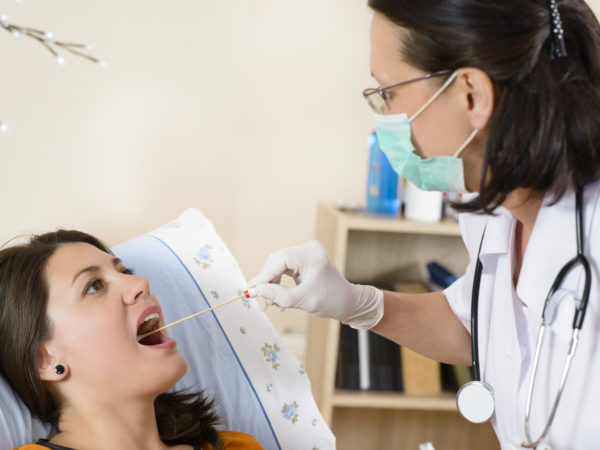Are Saliva Tests Any Good?
In the past you’ve discussed saliva tests and have said that they’re not a reliable method of assessing hormone levels. Is this still the case or are the tests now more accurate?
Andrew Weil, M.D. | January 17, 2013

I still feel that saliva tests for hormone levels are generally not reliable. I discussed your question with my colleague Tieraona Low Dog, M.D., an internationally recognized expert in the fields of integrative medicine, dietary supplements and women’s health, and an authority on botanical medicine. She agrees with me that blood tests ordered by a physician are the most accurate way to assess most hormone levels and that this type of testing continues to be regarded as the “gold standard” against which results of other testing methods must be measured. Dr. Low Dog notes, however, that saliva tests for cortisol, the adrenal hormone that mediates stress responses, are now considered highly reliable and that a growing body of evidence suggests that saliva tests can also accurately determine levels of the testosterone and DHEA (a precursor to male and female sex hormones, including androgens and estrogens).
Cortisol levels can be measured via blood, urinary or saliva tests. Testing for levels of cortisol may be recommended by a physician if you have symptoms suggesting Cushing’s syndrome, a condition characterized by excessive amounts of fat in the abdominal area, an unhealthy distribution that increases the risk of high blood pressure, heart disease, and diabetes. Elevated cortisol levels can have adverse effects on the immune system, memory, and sugar metabolism. Low cortisol levels can signal Addison’s disease, caused by damage to the adrenal glands or a pituitary gland problem that results in low levels of ACTH, (adrenocorticotropic hormone), a hormone involved in the secretion of cortisol.
The saliva test for cortisol is performed at home between 11 p.m. and midnight, the time of day when levels tend to be lowest. You put a swab in your mouth and keep it there for a few minutes until it becomes saturated. Elevated cortisol suggests Cushing’s syndrome, but further diagnostic tests are needed to reveal the underlying cause of the condition in order to determine what kind of treatment is needed. I understand that insurance companies typically cover the cost of saliva testing for cortisol. They do not yet cover saliva tests for levels of testosterone and DHEA. Insurers consider saliva tests to determine levels of these two hormones as well as those for estrogen, melatonin and progesterone to be experimental and unproven alternatives to blood tests. Some insurers do use saliva tests to determine if someone is smoking or exposed to secondhand smoke, however.
I would steer clear of the saliva tests widely promoted on the internet for home testing of hormone levels. The results supposedly determine your need for vitamins, herbs, phytoestrogens, and DHEA, as well as various “anti-aging” supplements, often sold on the same websites that promote the saliva tests. If you have reason to be concerned about your hormone levels, see your health care provider who can order the appropriate tests and, if necessary, prescribe the appropriate treatment.
Andrew Weil, M.D.









